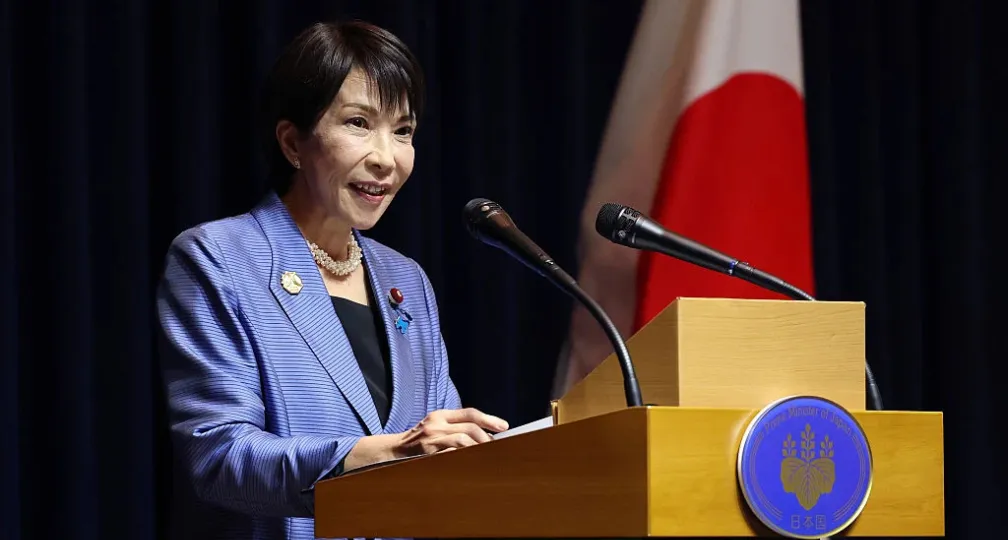Hungary’s Electoral System: Constructing a System Favorable to the Governing Party and Its Future Prospects

Overview of Hungary’s Electoral System
Hungary’s parliament is unicameral, consisting of a single legislative chamber, with a four-year term and 199 seats. Of these, 106 are elected in single-member constituencies and 93 by proportional representation.
Hungary once had a bicameral system, and as visitors to the parliament building in Budapest can see from the two chambers on the left and right wings, the country maintained a two-chamber legislature for centuries until Soviet occupation in 1945. Unlike neighboring countries such as the Czech Republic and Poland, Hungary did not restore its bicameral system after the collapse of the Soviet Union and has remained unicameral ever since.
The number of seats was also once larger. In the Hungarian parliament—one of the three largest parliament buildings in the world—there were 386 seats from 1990 until 2014. However, after Prime Minister Viktor Orbán established his second government in 2010, he used his parliamentary majority to pass a reform of the electoral law in 2011 (Act CCIII of 2011). Officially, the reform aimed to (1) adjust the number of MPs in proportion to population size, (2) create a simpler and clearer system, and (3) correct disparities in the value of votes. In reality, as many observers point out, the reform created systemic advantages for the governing party in multiple ways.
Act CCIII of 2011: A Major Overhaul of the Electoral Framework
First, the weight of single-member constituencies was increased. Before the reform, about 46% of MPs were elected in constituencies; afterwards, the share rose to 53%, strengthening the winner-take-all element of the system.
Second, constituency boundaries were radically redrawn. Scholars such as Kim Lane Scheppele of Princeton University have argued that the Orbán government used redistricting to pack opposition-leaning areas into larger constituencies while splitting Fidesz-leaning areas into several districts, thereby reducing the number of seats unfavorable to the ruling party.
Such changes have continued. At the end of 2024, for example, Budapest lost two seats (from 18 to 16), while the surrounding Pest County gained two (from 12 to 14). According to the independent media outlet Telex and election analyst Róbert László of the think tank Political Capital, while the shift could be justified in light of demographic trends, the fact that districts in pro-Fidesz areas with declining populations were not reduced highlights inconsistency and raises the suspicion of gerrymandering.
Third, the traditional two-round system, in which a runoff was held between the top two candidates if no one achieved a majority, was abolished. This change allowed Fidesz to win seats even in areas such as Budapest, where its support was relatively weak, simply by securing a narrow plurality. As a result, in the 2014 election—the first under the new law—Fidesz won about 85% of single-member constituencies. As Akane Yamanoi of Japan’s Mitsubishi UFJ Research & Consulting noted at the time, all Fidesz candidates who won in Budapest did so with less than 50% of the vote; under the old system, some of them would potentially not have been elected.
Finally, Hungary had previously sought to minimize “wasted votes” by adding the votes of losing candidates in constituencies to their party’s proportional list (known as “loser compensation”). The Orbán reform extended this mechanism to winners as well, allowing a party to transfer its surplus votes beyond what was needed for victory to the proportional tier. This uniquely Hungarian system—sometimes called “winner compensation”—further accentuated the winner-take-all character of the elections, as scholars such as Anna von Notz, deputy editor of Verfassungsblog, have argued.
Reference
[1]Although up to three candidates may advance under the formal rules, in reality one candidate typically withdraws, resulting in a runoff between two candidates.
Subsequent Reforms: Expanding the Franchise and Tightening Rules
Since 2011, further amendments have been introduced, including the extension of voting rights to Hungarians abroad, the relaxation of party registration requirements, and later, the tightening of requirements for parties to stand in elections.
First, in 2012, as part of the Orbán government’s outreach to ethnic Hungarian minorities abroad, people without a Hungarian residence—i.e., ethnic Hungarians living outside the country—were granted the right to vote in the proportional tier, with postal voting permitted. By contrast, Hungarian citizens with a domestic address but temporarily abroad can still only vote at embassies or consulates, a situation that several think tanks criticized as discriminatory from the outset. In 2024, media outlets such as Válasz Online reported speculation that constituencies might be created abroad for ethnic Hungarians, but this has not materialized to date.
Second, a series of reforms, beginning with Act XXXVI of 2013, relaxed the requirements for establishing political parties. This created strong incentives to form “fake parties” primarily to access state subsidies, leading to a sharp rise in the number of registered parties with little real activity. According to an OCCRP investigation, over 100 new parties were created by 2014, and around 250 were registered by 2018. Scheppele has noted that pro-Fidesz actors even established parties with names resembling those of opposition groups—for instance, Megoldás Mozgalom (“Solution Movement”), echoing the name of the liberal opposition Momentum Mozgalom—in what appears to have been an attempt to confuse voters.
Third, under the pretext of cracking down on such “fake parties,” the electoral law was amended again in 2020, further tightening the requirements for national party lists. Previously, parties needed to field candidates in 27 constituencies to submit a national list. After the reform, they had to run candidates in about two-thirds of all constituencies (71 out of 106), including at least one in Budapest and at least one in 14 of the 19 counties. This created significantly more difficult conditions for the opposition.
Institutional Uncertainty Ahead of the 2026 Election
Could further reforms be introduced before the 2026 election? Will further institutional changes occur before the 2026 general election? The aforementioned election analyst, Róbert László, has been warning since last year that changes to the system ahead of the election remain possible. Specific potential changes under discussion include:
1. Abolishing the “winner compensation” mechanism if a victory for the Tisza Party appears assured, thereby minimizing the scale of defeat
2. Lowering the current 5% electoral threshold (so that smaller parties can also win seats), which would disperse votes away from the Tisza Party.
3. In the event of a more significant projected defeat, abolishing the single-member district system and moving entirely to proportional representation.
In particular, under scenario (3), it would become virtually impossible for any party to secure a two-thirds majority, making constitutional amendments difficult. This may sound like an extreme institutional reform plan, but all of these scenarios are important points to consider.
In addition, some have even suggested extreme measures—such as preventing the candidacy of Party Leader Majar by indicting him on criminal charges, or nullifying the election altogether, as in the case of Romania’s presidential race (as noted, for example, by Anton Shekhovtsov, Visiting Professor at Central European University). Beyond potential institutional changes, close attention must also be paid to whether the election itself can proceed smoothly.
(Photo Credit: Alain Rolland / European Union)
References
・Cooper, Alex. “Fake Parties, Real Money: Hungary’s Bogus Party Problem.” OCCRP (Organized Crime and Corruption Reporting Project), December 9, 2018.
https://www.occrp.org/en/feature/fake-parties-real-money-hungarys-bogus-party-problem
・Cseke, Balázs. ”Készül a Fidesz 2026-ra: átrajzolták a választási térképet és módosítottak a szabályokon.” Telex, December 17, 2024.
https://telex.hu/belfold/2024/12/17/parlament-valasztasi-torveny-modositasa-valasztokeruleti-beosztas
・Kovács, Zoltán. “Here’s how Hungary’s electoral system works and why it was changed in 2011.” About Hungary, June 30, 2018.
https://abouthungary.hu/blog/heres-how-hungarys-electoral-system-works-and-why-it-was-changed-in-2011
・László, Róbert. “Akár jövőre is újraírhatja a választási rendszert a Fidesz.” 24.hu, December 19, 2024.
https://24.hu/belfold/2024/12/19/valasztasi-rendszer-szabalyok-fidesz-tisza-part-2026-laszlo-robert/
・Magyari, Péter. “Keresi a Fidesz a biztosítékot – létrehozhatják a határon túli egyéni körzeteket.” Válasz Online, August 26, 2024. https://www.valaszonline.hu/2024/08/26/valasztas-torveny-hataron-tuli-magyar-kisebbseg-valasztojog-egyeni-listas-torveny-korzet/
・Maškarinec, Pavel, and Jakub Charvát. “On the Way to Limited Competitiveness: Political Consequences of the 2011 Electoral Reform in Hungary.” Swiss Political Science Review 29, no. 1 (June 16, 2022): 37–57.
https://doi.org/10.1111/spsr.12535
・Political Capital. “A short guide to the Hungarian election system.” March 30, 2022.
https://politicalcapital.hu/news.php?article_read=1&article_id=2980
・Political Capital. “Választásirendszer-ráncfelvarrás n+1: fuss az életedért.” November 19, 2024.
https://politicalcapital.hu/konyvtar.php?article_read=1&article_id=3469
・Political Capital. “Hogyan akadályozhatja meg az Orbán-rendszer Magyar Péter választási győzelmét?.” March 12, 2025. https://politicalcapital.hu/hirek.php?article_read=1&article_id=3505
・Rutai, Lili. “A Tale Of Two Diasporas: The Battle For Hungarian Voters Abroad.” Radio Free Europe, February 21, 2022. https://www.rferl.org/a/hungary-election-diaspora-orban-marki-zay/31712662.html
・Scheppele, Kim Lane. “How Viktor orbán wins.” Journal of Democracy 33, no. 3 (July 2022): 45-61.
https://doi.org/10.1353/jod.2022.0039
・Shekhovtsov, Anton. “How Orbán plans to survive 2026.” EUObserver, August 26, 2025.
https://euobserver.com/news/ara3f747c3
・Tanács-Mandák, Fanni, and Attila Horváth. “The ‘Hacking’ of a Mixed Electoral System: A Case Study of Hungary.” Public Choice 204, no. 1–2 (June 20, 2025): 75–99. https://doi.org/10.1007/s11127-025-01296-z
・Tiszta szavazás. “Miért van lehetőség visszaélésekre a magyar választásokon?.” March 11, 2021.
https://politicalcapital.hu/pc-admin/source/documents/Visszaelesek-okai-jegyzet-Tiszta-Szavazas.pdf
・von Notz, Anna. “How to Abolish Democracy: Electoral System, Party Regulation and Opposition Rights in Hungary and Poland.” Verfassungsblog, January 16, 2019. https://verfassungsblog.de/how-to-abolish-democracy-electoral-system-party-regulation-and-opposition-rights-in-hungary-and-poland/
・(Japanese) 寺西和男「ハンガリー政権に「最大の挑戦者」 来春総選挙、16年ぶり交代は?」(朝日新聞、2025年8月27日)
https://digital.asahi.com/articles/AST8V2S62T8VUHBI00KM.html
・(Japanese) 山野井茜「外交・国際 ハンガリー総選挙の衝撃 : 与党フィデス圧勝の要因と今後」『金融財政business』 (10739)、16-19。https://www.murc.jp/wp-content/uploads/2018/06/global_1806_2.pdf


Research Fellow,
Digital Communications Officer
Yusuke Ishikawa is Research Fellow and Digital Communications Officer at Asia Pacific Initiative (API) and Institute of Geoeconomics (IOG). His research focuses on European comparative politics, democratic backsliding, and anti-corruption. He also serves as External Contributor for Transparency International’s Anti-Corruption Helpdesk, as Associate Research Fellow at the EUROPEUM Institute for European Policy, and as Part-time Lecturer in European Affairs at the Department of Economics and Business Management, Saitama Gakuen University. Prior to his current roles, Research Associate at IOG and API, contributing to its translation project of Critical Review of the Abe Administration into English and Chinese. Previously, he has worked as Research Assistant for API's CPTPP program and interned with its Fukushima Nuclear Accident and Abe Administration projects. His other experience includes serving as a visiting research fellow at EUEOPEUM Institute, a full-time research intern at Transparency International Hungary, and as a part-time consultant with Transparency International Defence & Security in the UK. His publications include "NGOs, Advocacy, and Anti-Corruption" (In Routledge Handbook of Anti-Corruption Research and Practice, 2025) and A Dangerous Confluence: The Intertwined Crises of Disinformation and Democracies (Institute of Geoeconomics, 2024). He has been featured in national and international media outlets including Japan Times, NHK, TV Asahi, Neue Zürcher Zeitung (NZZ), Handelsblatt, Expresso, and E-International Relations (E-IR). He received his BA in Political Science from Meiji University, MA in Corruption and Governance (with Distinction) from the University of Sussex, and another MA in Political Science from Central European University. During his BA and MAs, he also acquired teacher’s licenses in social studies in secondary education and a TESOL (Teaching English to Speakers of Other Language) certificate. [Concurrent Positions] Associate Research Fellow, EUROPEUM Institute for European Policy, Czechia External Contributor Consultant, Anti-Corruption Helpdesk, Transparency International Secretariat (TI-S), Germany Part-time Lecturer, Department of Economics and Business Management, Saitama Gakuen University, Japan
View Profile-
 India and EU Sign Mother of All Deals2026.02.09
India and EU Sign Mother of All Deals2026.02.09 -
 Orbán in the Public Eye: Anti-Ukraine Argument for Delegitimising Brussels2026.02.04
Orbán in the Public Eye: Anti-Ukraine Argument for Delegitimising Brussels2026.02.04 -
 Trump, Takaichi and Japan’s Strategic Crossroads2026.02.03
Trump, Takaichi and Japan’s Strategic Crossroads2026.02.03 -
 Analysis: When Is a Tariff Threat Not a Tariff Threat?2026.01.29
Analysis: When Is a Tariff Threat Not a Tariff Threat?2026.01.29 -
 Takaichi’s Strengths and the Need for ‘Strategic Signaling’2026.01.23
Takaichi’s Strengths and the Need for ‘Strategic Signaling’2026.01.23
 Oil, Debt, and Dollars: The Geoeconomics of Venezuela2026.01.07
Oil, Debt, and Dollars: The Geoeconomics of Venezuela2026.01.07 It’s Now or Never: India’s Ambitious Reform Push2026.01.09
It’s Now or Never: India’s Ambitious Reform Push2026.01.09 Orbán in the Public Eye: Anti-Ukraine Argument for Delegitimising Brussels2026.02.04
Orbán in the Public Eye: Anti-Ukraine Argument for Delegitimising Brussels2026.02.04 Analysis: When Is a Tariff Threat Not a Tariff Threat?2026.01.29
Analysis: When Is a Tariff Threat Not a Tariff Threat?2026.01.29 A Looming Crisis in U.S. Science and Technology: The Case of NASA’s Science Budget2025.10.08
A Looming Crisis in U.S. Science and Technology: The Case of NASA’s Science Budget2025.10.08











